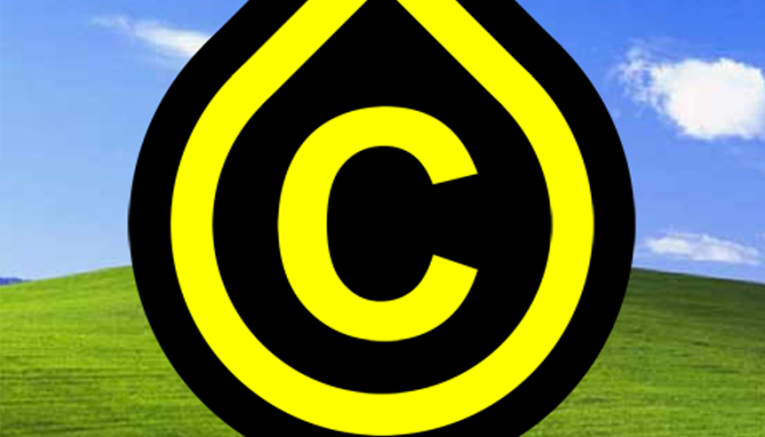Oil of the 21st Century

Back in 2007, a movement sprang up and immediately gained prominent attention, known as 'the Oil of the 21st Century' (aka Oil21). Their message was that intellectual property would become the most valuable asset of the global internet world. And 16 years later, it's very clear that they were right. Digital content, and everything that goes with it - the repository owning, official channels of dissemination, metadata, human and non-human interactions, hosting, finding, sharing, copying, accreditation... the huge wealth of data that is generated by each piece of content and the subsequent value of that content, has become a vast data farming, harvesting, selling and reselling industry in ways most of us could not have imagined even only 16 years ago. But Oil21 did imagine, and any of us who had ears to listen, also understood what was about to happen.
I became aware of Oil21 in much the same way as any person who was part of the mostly tech and digital culture internet community at that time would have, via blogs. We blogged, followed other blogs, commented, used Technorati to follow trending topics and people, we used RSS readers (RSS is steadily making a comeback), used tools like blogrolls and waypath to follow link backs. Much like Mastodon today, this was entirely built up from people's information sharing and connection creation: who you followed, what you shared, what they shared and so forth. It was organic, it was human scale, though anyone who used tools to visualise the blog network online could see how big it was already becoming. At that time I had only recently become a lecturer in a school of multimedia, part of a faculty of computing at a big urban new university in London. I shared a large office with at least twenty other lecturers and senior lecturers, and it was a good place to work. I knew that Oil21 was very relevant to students of multimedia, so began to try to get other lecturers interested in how we could teach about this. I put printed versions of their logo image (used in this post) up on the walls of the office, hoping to encourage people to talk to me about it. No one ever talked to me. Not one person. Looking back now, I believe that no one engaged with me about Oil21 because they had no real, meaningful idea of what I was talking about.
I felt very energised about Oil21, after all, I had been part of the '80s/'90s music industry in London, and had experienced first hand as a songwriter what it was like to be invited to meetings in the offices of Intersong, EMI and Warner Chappell publishing houses, and feel the power of being able to write songs that might be worth actual money. Not my power, the power of the possibility of others to extract wealth from me. I felt the ruthless enterprise and acute knowledge of those publishing magnates, and why it was that they made so much money out of other people's 'art'. They knew what they were doing, they were not just chancers who got lucky. Those buildings were extremely lavish, built to proclaim the indescribable wealth generated by the music and film industries, and that being in that world was both a rare honour, and that you as one single person had no power at all, at least until you had proved you could generate wealth at scale. They were like the biggest oil companies, financial investment companies or the most powerful digital platform monopolies are today. They were in control, and you were worthless in their gaze until proved otherwise. Perhaps no one understands these issues unless they have experienced for themselves at close range the extremely extractive publishing rights for creative output.
The copyright wars never stopped
But back to Oil21. Oil21's agenda has not gone away, even though their prescient project is now archived. The issues are screamingly pertinent. Take for example the opening statement used on their website:
"Intellectual Property is the oil of the 21st century" - this quote by Mark Getty, chairman of Getty Images, one of the world's largest Intellectual Proprietors, offers a unique perspective on the current conflicts around copyrights, patents and trademarks."
Getty images have been in the news again very recently, filing a case against Stability AI, alleging that the company copied 12 million images to train its AI model ‘without permission ... or compensation.’ . Other IPR infringement cases have been filed and though issues with AI training models and output in relation IPR remain to be clarified (if they ever could be), it is clear that Oil21 were very, very correct in how they saw the future panning out.
Consider another paragraph on their website:
"Technological progress - from the Printing Press to the BitTorrent protocol - is what essentially drives cultural development and social change, what makes it possible to share ideas, embrace expressions, improve inventions and correct the works of the past. Human history is the history of copying, and the entirely defensive and desperate attempt to stall its advancement by the means of Intellectual Property - the proposition to ressurect the dead as rights holders and turn the living into their licensees - only indicates how profoundly recent advancements in copying technology, the adaptability and scalability they have attained, the ideas and habits they are creating, are about to change the order of things. What lies at the core of the conflict is the emergence of new modes of subjectivation that escape the globally dominant mode of production. The spectre that is haunting Intellectual Proprietors world-wide is no longer just the much-lamented "death of the author", but the becoming-producer and becoming-distributor of the capitalist consumer."
This encapsulates the crux of the issue: how do we 'control' the power of digitised dissemination? Putting aside obvious differences between real-world and digital product cost to unit manufacture and dissemination, let's focus on what's happening out there on the interweb. Interweb information sharing culture is not only legal, it is also very illegal. Jonny Saunders, an academic from University of Oregon, discusses the info-flow of BitTorrent culture to both create, curate and share digital content and demonstrates the efficiency of the illegal BitTorrent content sharing culture. He makes the case for a modified P2P mechanism for sharing and reusing academic content at scale as a preferred way to publish and disseminate work. His very knowledgeable and aware monograph is highly recommended reading, discussing the crisis of academic publishing and the information culture wars with a detailed awareness, for both the legal and illegal terrains of how information moves around the interweb.
However, streaming probably now outweighs BitTorrent for much of the unofficial media sharing these days. While we are continuously told that the music and movie business is now back on track, making billions from official streaming monopoly platforms like Spotify, Netflix, Amazon etc., the pregnant silence of zero official discussion on this topic indicates the massive problem of illegal streaming. Media streaming websites are now so prevalent and uncontrollable that you can safely assume (for example) that every student in your class is using them, for music, movies or TV series. Every student. I know, I've held slightly illicit seminar sessions on this subject now and again for years that engaged the students like no other topic. They were very happy that someone was actually talking about the truth of their world.
IPR and Academia
All these issues apply to academic information just as they would to movies or pop songs. In academic circles there seems to be a serious disconnect for most people between what they write and how it is published and disseminated. Why, when significant amounts of research are funded by public money, is it then even permissible to publish in closed publishing houses? Why are Open Access 'fees' so high and preclusive? This sets up a pattern of being forced into closed publishing unless your university is awash with money. Obediently, universities queue up to pay huge fees to access journal catalogues via their own library search systems to share the content of those publishing houses, and pay for the privilege of doing so. Everyone pays, no one seems to ever seriously challenge this incredibly extractive model, when they have already paid through public funding grants for the work being written about. It's astonishing. Luckily, I'm not the only person who thinks so - Saunders thinks so too. His rant about the extreme inefficiency, outdatedness and embedded extractive practices of the academic publishing houses is a refreshing and informative read.
Academic work is not immune to illicit access. Almost anything can be obtained within a few seconds from vast repositories for both books and papers. Sometimes, university staff themselves cannot even tell if the website they are using to obtain PDF copies of academic papers is legal or not. I have used an academic library fairly recently where the assistant librarian actually recommended me to a site I should try for finding a paper that she clearly had no idea was illegal. Whilst it is almost impossible to discuss this crisis of information delivery openly, privately, everyone knows about it. I would guestimate very conservatively that certainly more than 50% of all PhD students (for example) will know where to get academic materials from that bypass the walled gardens of academic publishing website repositories. The academic cat leapt out of that bag at least a decade ago.
Where to next?
There is no solution that tries to build more walled gardens. The DRM industry has attempted to make fail-safe DRM lock-in for at least 15 years and as soon as a new way of doing it comes online, it is hacked. There is plenty of information readily available to testify to this (and it's now legal to do it in some circumstances). The only solution is to think differently. The solution is not to admit defeat and 'do everything for free' as someone has to make money somewhere to feed themselves. It's really as basic as that. So how do we monetise an interweb flooded with intellectual property that is not rewarding anyone for its use and dissemination? We monetise in tiny incremental ways the interactions of the content when it is displayed, shared and retrieved. At least that could be a start to thinking differently. But that's for another blogpost otherwise I'll be here all day.
Full size image (click)
 The logo of the Oil of the 21st Century, 2007
The logo of the Oil of the 21st Century, 2007